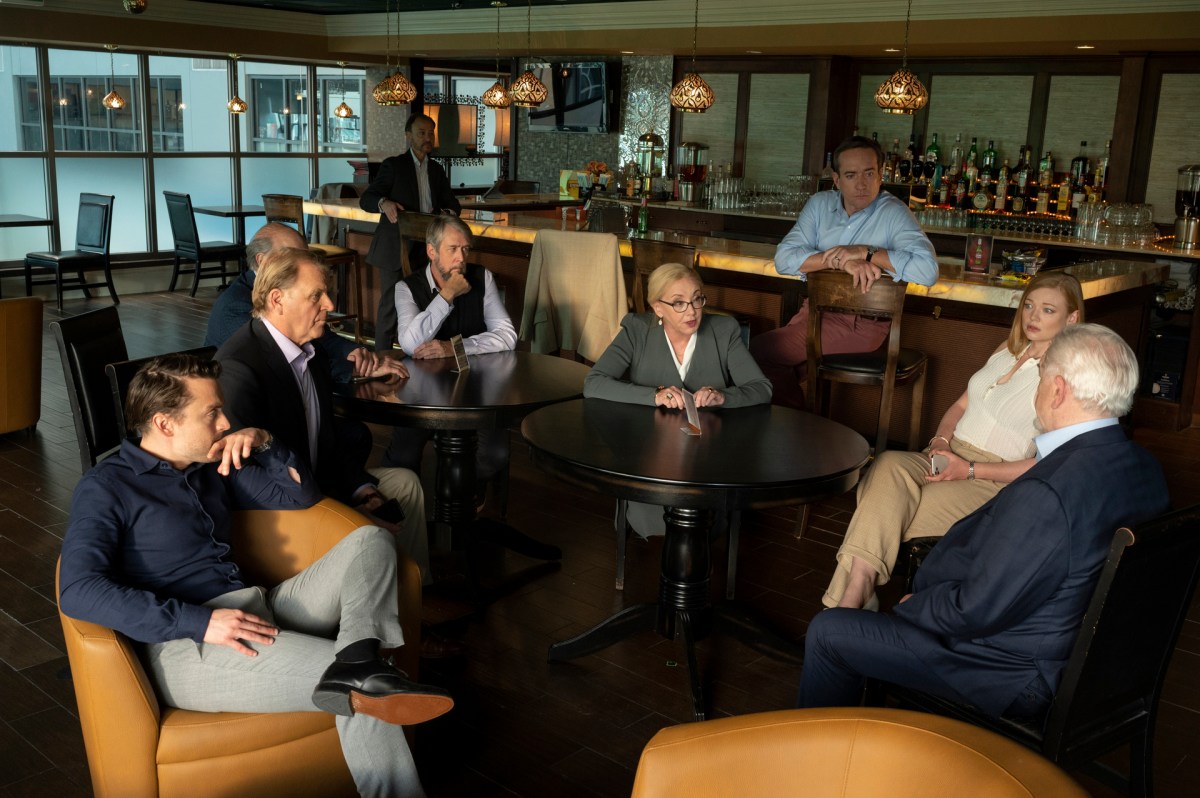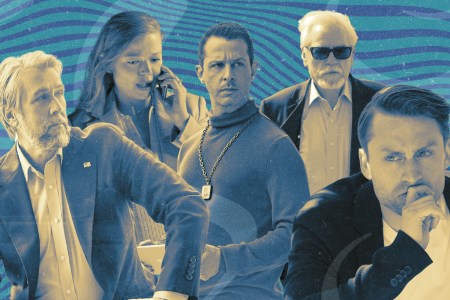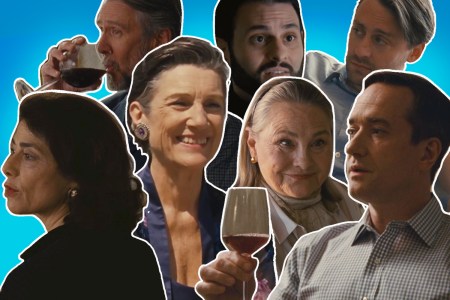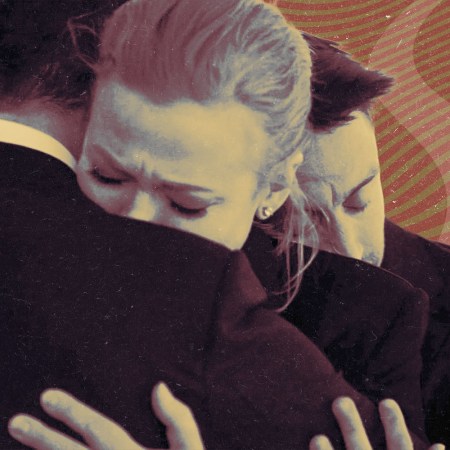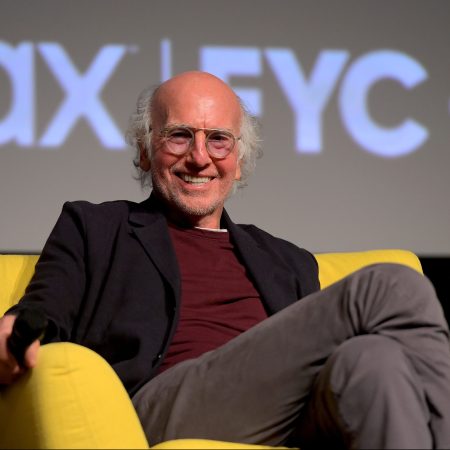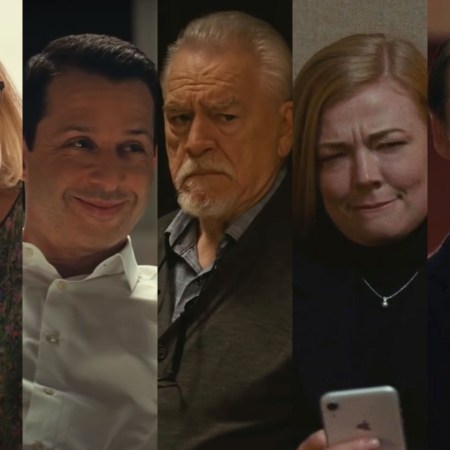You remember the end of season two of Succession, for sure. Kendall, who’d spent that year’s entire run of episodes seemingly in a shattered malaise, with no purpose other than to do what his dad told him to do, pulled the ultimate one-eighty and roasted Logan on the strength of what turned out to be not-terribly-damning papers that Greg the Mutherfuckin’ Egg had copied during a Tom-ordered document shred. The truth was, Kendall said in that press conference, his father was “a malignant presence, a bully and a liar.” Logan was also “fully personally aware” of all that was going on in Waystar Royco’s cruises department, which, as Mic.com wrote, was “like Jeffrey Epstein’s real-life horrors, except replace former presidents aboard a private jet with high powered fictional executives on a cruise ship.”
In other words, Logan was a bad guy. But so was Kendall — not for ratting out his dad, but for profiting from the cruise lines just the same, for being an absent father and for his role in the death of a server at his sister’s wedding. And Kendall couldn’t be the only offspring of a prick the size of Logan Roy to host such a disreputable character. Brother Roman oversaw the destruction of a rocketship and celebrated when he learned that only two guys who worked at the site each lost thumbs and another, possibly, an arm. There’s sister Shiv who told her husband straight to his face that he wasn’t good enough for her and, of lesser import, eldest brother Connor, who invested millions of dollars into a campaign for President of the United States with the express purpose of boosting his self-esteem and elevating his own family, which was already positioned in the uppermost of all crusts.
Individuals merely in Logan’s orbit who did not emanate directly from his loins — Tom, Greg, Gerri, Karl and Frank — have also proven to be despicable, primarily by positioning themselves as hanger-ons to the nth degree.
Why ‘Succession’ is the best show on TV
So many terrible people on Succession committing so many loathsome acts of unconscionable insensitivity — and I could go on about all of them, and include a number of others. Yet we choose to watch, obsessively, positioning the best-regarded show on TV among the highest-rated. But producers and distribution companies of any series don’t attract 8.4 million weekly viewers, as Succession has in its final season, without making their characters relatable on some level to so many people. If Succession only appealed to billionaires like the ones featured on the show it’d draw an audience of about 700 in the U.S.
And most of us these days don’t like billionaires. Our social consciousness about the prohibitive wealth gap in this country is arguably more robust than ever, growing at about the pace of income disparity, which just keeps on widening. Yet the most alluring series on TV pulls the curtain back on the lives of the type of people we dislike most even before we see how profoundly they snub their noses at the law or how drastically their terrible decision-making impacts the much larger populace of fictional working-class schmoes — the bulk of Succession’s viewership in real life.
How the fuckity-fuck-fuck-fuck did the showrunners make that happen? The answer lies in a moment from the very beginning of season three that you almost certainly don’t remember.
The Biggest Unanswered Questions Ahead of the Final Season of “Succession”
Everything you need to remember before Sunday’s premiereAfter Kendall dropped what, at the time, felt like an atomic bomb on Waystar Royco’s prospects of sustainability under Logan leadership, the patriarch and his devotees for at least the day gather at a private airport to figure out next steps. Time is of the essence should they not want the stock price to plummet. Hugo Baker, the twiggy communications executive and apparent fixer, does his best to maintain a calm veneer, though pockmarks of stress turn up as he fields dizzyingly unclear directions. He asks Gerri their desired destination so that he might quickly hail a jet. She tells him the group is either going to New York, Geneva, London, Singapore or Los Angeles, information that’s about as helpful to Hugo as a spoon would be to any hungry animal without opposable thumbs. A dull frustration emanates from his nod of acquiescence as well as his approximately 15-percent sarcastic verbal response of “OK, thank you.”
But Hugo soon takes care of business, because that’s how he stays employed. “Hugo’s got planes,” announces Gerri in a lounge that, according to Hugo, in spite of its large windows, marble bar and decorative Roman columns, was somehow “not that nice, actually.” A duo of minibusses ushers the group to a runway, and Hugo moves to tell the bossman that everything’s alright, the jets are “fueled and tooled,” he eventually says, ready to take them to a prospective “fuck fest,” whatever that means. He did good by bringing a swift end to their temporary travel interruption, and can now announce as much to Logan, who’s just on the other side of a minibus door. Hugo pulls on the external handle and for half a beat nothing happens. Is it locked? Does someone inside need to open the door for him? No. It’s one of those motorized doors that takes less physical effort to open, but also takes way longer to expose the occupants inside than it would have if the person outside just did it themselves. The tension in Hugo’s body is palpable as he waits for the door to open, even if it’s only for an extra second. Finally, when enough space has presented itself between his face and Logan, Gerri, Tom, Frank, Shiv and Roman, he tells them the news about the planes and awaits his pat on the back like a dog anticipating a treat after giving paw.
That one fleeting moment of inconvenient waiting that causes penetrative stress for Hugo is a crystallization of everything that makes Succession consumable for Americans in the 99 percent. It says, “It’s not that great to be rich and, in fact, these people are no different than anyone else. They suffer, too.”
Uber-rich characters on ‘Succession’
Jonathan Braylock, who’s written for TV shows Grown-ish and Astronomy Club, as well as a Judd Apatow-produced series, Dystrophia, that’s in development, says Succession viewers see how the uber-rich characters “live their lives in this way that is beyond what most humans will ever experience,” but also observe “the emptiness” that can come with such status. “It’s showing you the emotional turmoil they have to go through,” Braylock says, “how much they have to deny parts of themselves [and] lower themselves.”
TV star Judge Judy, who was once middle-class but is now reportedly worth nearly half a billion dollars, told Norm Macdonald on his Netflix interview show in 2018 that, even after a person comes into great financial wealth, “Life has stressors.” Lots of money eliminates a person’s financial stress, sure, she said, but it doesn’t take away stressors tied to health or family.
This plays out in excruciating detail on Succession, where week after week we watch the Roy offspring, their childhoods rife with emotional turmoil, try to navigate lives filled with immense pressure. (After Logan was gone for a few episodes this season, there was Mum, turning up at the funeral to remind us of what they’ve dealt with since they were young.) The adult-children Roys tend to make poor choices befitting the broken individuals they are. They’ll always have money to fall back on, yes. However, what’s that really worth to them if they’re just miserable wretches all the time?
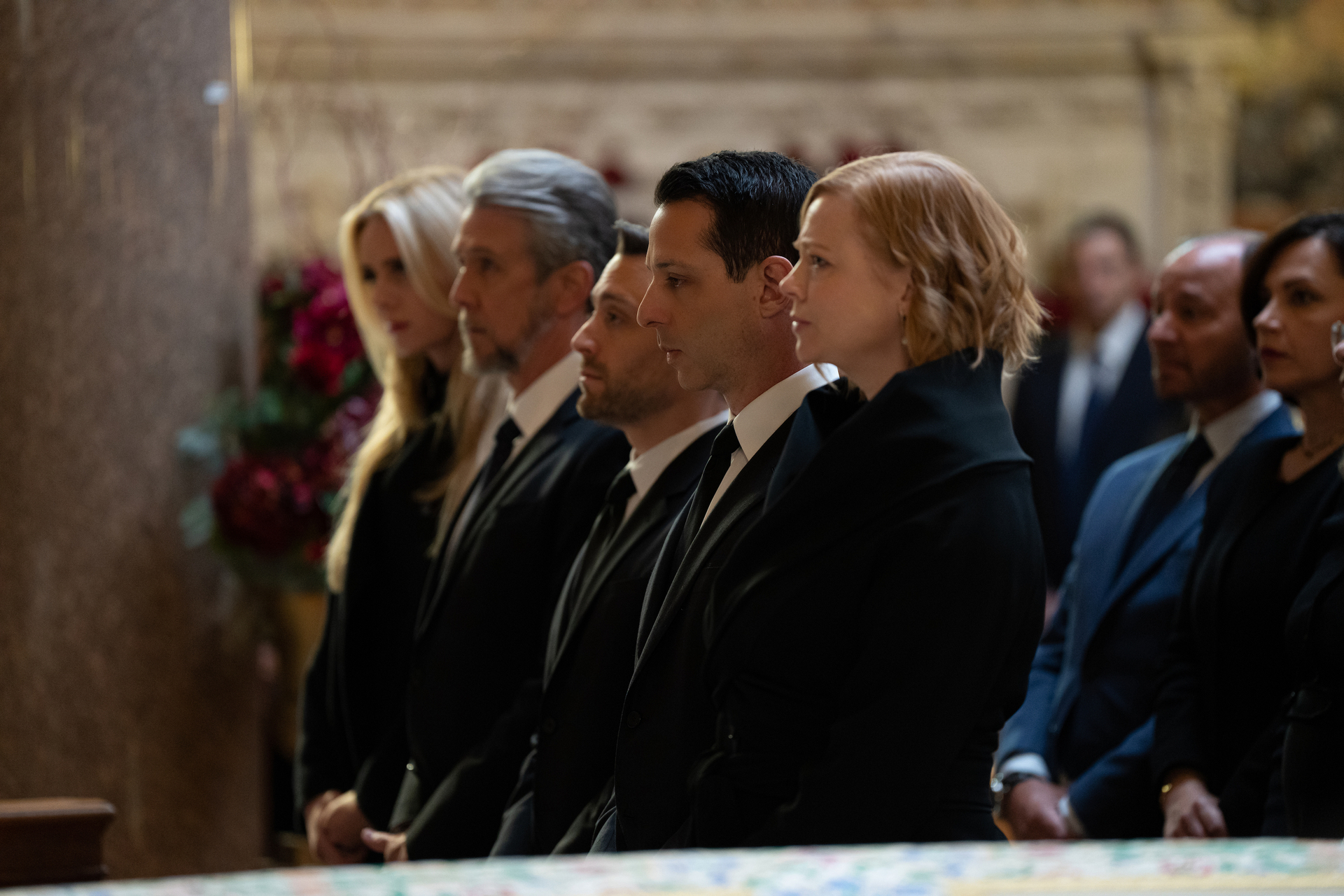
“The writers are able to tap into [their] humanity,” says Braylock, who’s watched the series since it premiered in 2018. “The reality is, no matter what class you are, race, geolocation, nationality, ethnicity, we’re all human beings and all human beings share similar emotions, dreams and fears, pathos. It’s tapping into that that’s the key.”
Formulating stories of characters from the upper class that are compelling to the masses is nothing new. The Ancient Greeks did it. Shakespeare did it — unknowingly inspiring Succession and countless other pieces of media along the way. F. Scott Fitzgerald did it, and in the case of The Great Gatsby, like with the writers of Succession, he engineered wealthy characters that were challenging to root for. But given the awareness of financial inequality in the U.S. right now, and the severe disapproval of rich men like Donald Trump, Elon Musk, Jeff Bezos and others, who in a decade like the 1980s were propped up, it took an extra-special production team to generate the perfect brew of disgusting behavioral traits for these characters that could be made more palatable through observations that they’re responses to trauma — vis-à-vis childhood experiences and living in a capitalist society.
The Succession team isn’t the only group doing this in film entertainment even now — though they’re the best at it. In a Vulture essay from the run up to this year’s Academy Awards, film critic Sam Adler-Bell wrote that “hostility to the ultrarich has become a marker of modish cultural literacy,” on display in recent movies Triangle of Sadness, The Menu and Glass Onion. But Adler-Bell’s problem with those offerings was that their respective plots ultimately set stages for working-class characters to deliver “retributive violence” and aggression, making them seem no better than the rich folk depicted in the movies.
“Watching these films, I found my class rage dissipating — giving way to pity — in proportion to the degree of suffering onscreen (and the cruelty and relish with which it was inflicted),” Adler-Bell wrote. “The targets are cartoonishly deserving, but even caricatures can bleed, weep, and shriek. In these moments, the moral valence seems to flip, from a didactic invitation to enjoy this carnival of comeuppance to pious scolding: Be careful what you wish for.”
Succession and The White Lotus
Back on TV, Adler-Bell indicated that Succession and its network neighbor The White Lotus do more commendable jobs of catering to working-class viewers’ “feeble wish fulfillment” to “live vicariously in luxury,” while at the same time “satiating a furtive lust for class warfare.”
All the Wine Snobbery Moments on “Succession,” Ranked by Sommeliers
What can we learn about the Roy family from their takes on grapes?That may have been the case in season one of The White Lotus, but it was less effectively executed in season two. The difference? The new characters were far less interesting because they were somehow too relatable. Season one’s crew were zanier than those of its successor, with the exception of holdover Tanya, played by Jennifer Coolidge, who stood out so much she won a boatload of major awards, including an Emmy, for her performance in the sophomore effort, not the initial run. (The other character to make it into season two from the first was her lover, Greg, whose storyline inexplicably had no resolution.)
Who cared if, in season two, a couple of estranged, ridiculously hot college buddies fought over their ridiculously hot partners, or if the son of a powerful Hollywood player gave a few thousand dollars to a ridiculously hot Italian sex worker? All of them will go back to America with their wealth and prospects still firmly intact. Sure, Portia was out of a job after Tanya, for whom she worked as an assistant, drowned. But Portia was hard-working, smart and young enough to figure something out eventually, and she hated that gig to begin with. One could basically adopt that same perspective to the outcomes for the Lotus season one characters, but they were so over-the-top colorful and compulsive it was impossible to pull your eyes away from them. (The coked-out hotel manager defecating in an obnoxious guest’s luggage was *chef’s kiss*.)
As Braylock says about watching Succession, “It’s still fun to see people on a yacht and going on a corporate retreat in these mountains — the things we daydream about.” But the “class warfare” that, according to Adler-Bell, viewers “lust” after actually isn’t present in Succession at all. The Succession characters have almost zero interactions with non-rich people in the series. (Granted, when they do, the Roys treat them like garbage.) So we’re not so much watching working-class people burn all that the rich people have as we are witnessing extremely well-written, multifaceted individuals struggle to cope with the same types of problems the rest of us have.
Cousin Greg Is the Only Logical Choice to Win “Succession”
Everyone else has been too busy jockeying for position to notice his quiet ascent“Not everyone has grown up with a distant parental figure,” Braylock says, “but I do think that most people can relate to wanting to make their parents proud, to wanting to feel special,” which is a clear motivator for the Roy kids.
Storytelling in its essence, Braylock continues, “is a reflection of what we’re seeing in real life and a huge part of that — especially for television, where you get to stay with the same character for many episodes and hours and hours of entertainment — you need to see humanity reflected in those characters.”
That’s why viewers fall in love with the ones on Succession, he says.
“They either see themselves in them, see what they don’t want to be, or what they aspire to be, or see that they’ve gotten trauma from relationships — and seeing it acted out on screen helps us process those things.”
Even self-destructive Kendall, neofascist Roman, cold-hearted Shiv and stupid Connor can give us a better chance at working through our shit. What will we do when they’re gone after Sunday?
This article was featured in the InsideHook newsletter. Sign up now.
